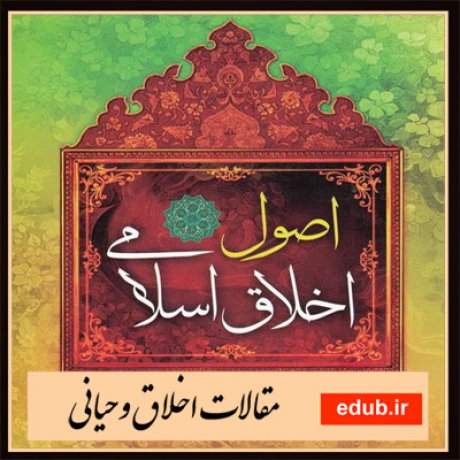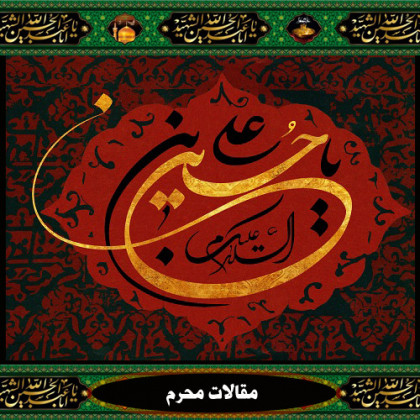مقاله دین و اخلاق، مقایسۀ رویکرد کرکگور و اشاعره

مقاله علمی و پژوهشی " دین و اخلاق، مقایسۀ رویکرد کرکگور و اشاعره" مقاله ای است در 21 صفحه و با 39 فهرست منبع که در مجلات معتبر علمی و پژوهشی با رویکرد اخلاق وحیانی منتشر شده است
در این مقاله علمی و پژوهشی به مباحث عقل؛ اخلاق؛ دیدگاه کرکگورو دیدگاه اشاعره پرداخته شده است
چکیده مقاله
از نظر کرکگور، اخلاق در مرحلۀ دینی ـ که سومین مرحله از مراحل زندگی است ـ محقق میشود و مؤلفۀ اصلی آن، تسلیم در برابر امر مطلق دین است. ارزشهای عام، کلی و عقلی در اخلاق، اعتباری ندارند. اخلاق از نظر اشاعره با مؤلفۀ حسن و قبح و تکلیف دینی، الاهی و شرعی، از حسن و قبح و تکلیف ذاتی و عقلی، دوری میجوید. از این رو، در اخلاق کرکگور و نیز در اخلاق اشاعره، عقل جایگاهی به منزلۀ معیار اخلاق، معرفت اخلاقی، الزام اخلاقی و انگیزش اخلاقی ندارد؛ و این مراتب، کاملاً در اختیار دین است. این مقاله ضمن نشان دادن اخلاق دینی کرکگور و اشاعره، اختلافهای آنها را نیز در این رویکرد مشترک بیان میکند. اشاعره از بدو امر، دلالت و حکم اخلاقی را از دین میگیرند؛ اما کرکگور در اصل برای عقل، دلالت و حکم قائل است، اما امر مطلقِ دین، باعث میشود دلالت و حکم عقل به تعلیق درآید؛ همچنین بر خلاف آنکه کرکگور مفاهیم ارزشی و الزامی اخلاق را با عقل درمییابد، اخلاق اشاعره، حتی در ساحت معنا و مفاهیم اخلاقی نیز به دین وابسته است.
عنوان مقاله [English]
Religion and Ethics: a Comparison between Kierkegaard’s Approach and the Asharites’ Approach
چکیده [English]
According to Søren Kierkegaard, ethics happens at the religious stage, which is the third stage of life, and its fundamental element is submissiveness to the categorical imperatives of the religion. Moreover, general, common and intellectual values are totally irrelevant in ethics. Further, based on the Asharites’ standpoint, ethics is characterized by the element of good and evil and by the religious, divine and legal duties, as opposed to the good and evil and the inherent and intellectual duties. Hence, neither in Kierkegaard’s standpoint on ethics nor in that of Asharites does intellect play the role of the ethical criterion, ethical knowledge, ethical duty or ethical motivation, and these stages all belong to religion. The present paper aims at reviewing the religious ethics of Kierkegaard as well as that of Asharites and will also explain their differences in their common approach. While the Asharites initially derive the ethical indications and rules from religion, Kierkegaard basically believes in the indication and the rule of intellect; however, the categorical imperative of the religion causes the indication and the rules of intellect to be suspended. Furthermore, contrary to Kierkegaard who derives the valued and necessary concepts of ethics from intellect, the Asharites’ version of ethics is dependent upon religion even in the domains of ethical meanings and concepts.
کلیدواژهها [English]
Intellect, Ethics, Kierkegaard, Asharites
دانشجویان دوره دکترا و کارشناسی ارشد می تواند از محتوای این مقاله برای رساله دکترا و پایان نامه کارشناسی ارشد بهره ببرند .
مطالب مرتبط
-
 روزشمار حرکت امام رضا(ع) از مدینه تا مرو
روزشمار حرکت امام رضا(ع) از مدینه تا مرو
-
 مقاله علم اخلاق: تعریف، موضوع و هدف
مقاله علم اخلاق: تعریف، موضوع و هدف
-
 مقاله مقایسه تطبیقی نظریه محقق طوسی و علامۀ حلّی در معاد جسمانی با نظریه شبیهسازی
مقاله مقایسه تطبیقی نظریه محقق طوسی و علامۀ حلّی در معاد جسمانی با نظریه شبیهسازی
-
 مقاله اصول تربیت اخلاقی از منظر اسلام: رویکردی تطبیقی
مقاله اصول تربیت اخلاقی از منظر اسلام: رویکردی تطبیقی
-
 مقاله کاربرد اصل تشکیک در معاد جسمانی از دیدگاه ملاصدرا
مقاله کاربرد اصل تشکیک در معاد جسمانی از دیدگاه ملاصدرا
-
 مقاله بررسی رابطه بین اخلاق اسلامی کار و فرهنگ سازمانی با رضایت شغلی کارکنان
مقاله بررسی رابطه بین اخلاق اسلامی کار و فرهنگ سازمانی با رضایت شغلی کارکنان
-
 وقتی کمر امام حسین(ع) شکست
وقتی کمر امام حسین(ع) شکست
-
 مقاله رابطه دین و اخلاق در قرآن
مقاله رابطه دین و اخلاق در قرآن
تگها
مطالب پربیننده
- سئوالات و پاسخنامه آزمون دکترای مهندسی صنایع سال ۱۴۰۳
- سئوالات و پاسخنامه آزمون دکترای مهندسی پزشکی سال ۱۴۰۳
- سئوالات و پاسخنامه آزمون دکترای مهندسی مکانیک (2) سال ۱۴۰۳
- سئوالات و پاسخنامه آزمون دکترای مهندسی مکانیک (1) سال ۱۴۰۳
- سئوالات و پاسخنامه آزمون دکترای مهندسی نقشه برداری سال ۱۴۰۳
- سئوالات و پاسخنامه آزمون دکترای مهندسی عمران سال ۱۴۰۳
- سئوالات و پاسخنامه آزمون دکترای مهندسی برق سال ۱۴۰۳
- سئوالات و پاسخنامه آزمون دکترای علوم شناختی سال ۱۴۰۳
- سئوالات و پاسخنامه آزمون دکترای علوم کامپیوتر و بیوانفورماتیک سال ۱۴۰۳
- سئوالات و پاسخنامه آزمون دکترای ژئوفیزیک سال ۱۴۰۳
- سئوالات و پاسخنامه آزمون دکترای فیزیک سال ۱۴۰۳
- سئوالات و پاسخنامه آزمون دکترای ریاضی سال ۱۴۰۳
- سئوالات و پاسخنامه آزمون دکترای آمار سال ۱۴۰۳
- سئوالات و پاسخنامه آزمون دکترای آموزش زبان و ادبیات انگلیسی سال ۱۴۰۳
- سئوالات و پاسخنامه آزمون دکترای بیوشیمی سال ۱۴۰۳
- سئوالات و پاسخنامه آزمون دکترای شهرسازی سال ۱۴۰۳
- سئوالات و پاسخنامه آزمون دکترای معماری سال ۱۴۰۳
- سئوالات و پاسخنامه آزمون دکترای مدرسی معارف اسلامی سال ۱۴۰۳
- سئوالات و پاسخنامه آزمون دکترای علوم ارتباطات سال ۱۴۰۳
- سئوالات و پاسخنامه آزمون دکترای حسابداری سال ۱۴۰۳
- سئوالات و پاسخنامه آزمون دکترای گردشگری سال ۱۴۰۳
- سئوالات و پاسخنامه آزمون دکترای حقوق سال ۱۴۰۳
- سئوالات و پاسخنامه آزمون دکترای مدیریت سال ۱۴۰۳
- سئوالات و پاسخنامه آزمون دکترای علم اطلاعات و دانش شناسی سال ۱۴۰۳
- سئوالات و پاسخنامه آزمون دکترای روانشناسی ۲ سال ۱۴۰۳
- سئوالات و پاسخنامه آزمون دکترای سنجش و اندازه گیری سال 1403
- سئوالات و پاسخنامه آزمون دکترای روانشناسی سال 1403
- سئوالات و پاسخنامه آزمون دکترای علوم تربیتی سال 1403
- سئوالات و پاسخنامه آزمون دکترای فلسفه سال 1403
- سئوالات و پاسخنامه آزمون دکترای الهیات و معارف اسلامی سال 1403
- قوانین کلاس و مدرسه
- قالب آماده و زیبای پاورپوینت(15)
- ۵ فیلم که همه زنان ایرانی باید تماشا کنند
- شعار سال ۱۴۰۱ «سال تولید، دانشبنیان و اشتغالآفرین»
- پورنوگرافی چیست و چه اثری بر مغز و رابطه جنسی دارد؟
- رنگ چشم هایتان درباره شما و اجدادتان چه می گوید؟
- قالب زیبای پاورپوینت برای ارائه پروپوزال و دفاع رساله دکترا
- قالب پاورپوینت کادر دار زیبا
- متن کامل دعای جوشن کبیر با ترجمه
- قالب پاورپوینت گرافیکی و طرح دار زیبا
- قالب پاورپوینت گرافیکی زیبا
- نمونه تدریس درس اول هدیه آسمان پنجم
- قالب پاورپوینت گرافیکی جالب
- اندکی درباره درسپژوهی
- قیافه و ظاهر واسه متولدین کدوم ماه، خیلی مهمه؟
- چشم رنگی ها چه شخصیتی دارند؟ روانشناسی رنگ چشم ها
- قالب پاورپوینت
- همه زائران سلطان
- کتاب پسری که جادویی شد
- معرفی کتاب
- دوستی با کتاب
- قالب پاورپوینت گرافیکی
- درباره محسن رضایی
- تکنولوژی و اهمیت آن در زندگی امروزی
- معرفی کتاب
- خلاصه کتاب سواد بصری
- درباره فخرالدین عراقی
- درباره امیر کبیر
- کتاب پیوند زخم خورده
- کتاب راهنمای کامل Interaction access

